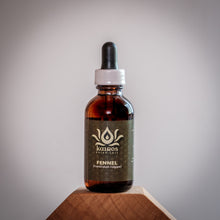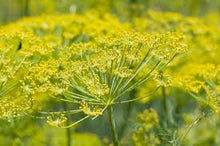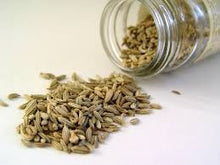Fennel is widely employed as a carminative in humans and in veterinary medicine (e.g., dogs), to treat flatulence by encouraging the expulsion of intestinal gas. Improve eyesight. remedy for coughs; it thins mucus so you can expectorate efficiently. A syrup made from fennel juice may be prescribed for chronic coughs. Bronchial ailments digestive and carminative properties for which it enjoys an unparalled reputation Fennel is also anti-spasmodic in nature and affects the nervous system and nerve function due to its ability to prevent or relieve spasms of muscles; it's hepatic and affects the liver and the body's detoxification systems due to its ability to tone, strengthen, detoxify and heal the liver; it's anti-inflammatory and affects immune system and reactivity due to its ability to counteract inflammation; it's diuretic and detoxifies the organism by stimulating the production of urine and the elimination of toxins through the urine; it's choleretic and furthers its reputation as a digestive aid by increasing the liver's production of bile; it's anti-microbial and has actions against a range of bacteria as well as various fungi and yeasts.
Made from ground seed.
Bottle: 50ml
-----------------------------------
Would you like to know more? Below you can find an excerpt from our book "Medicinal Perennials to Know and Grow"
Fennel is widely employed as a carminative, to treat flatulence by encouraging the expulsion of intestinal gas. It is used as a remedy for coughs: has the ability to tone, strengthen, detoxify and heal the liver and increases bile production, thus aiding digestion. It's anti-inflammatory, anti-microbial and has actions against a range of bacteria as well as various fungi and yeasts. It can also help to improve eyesight.
Fennel is a valuable plant both as a nourishing vegetable and a medicine. It tastes great and is easy to grow. Originating from the Mediterranean, it can be grown as an annual vegetable, or as a perennial for its foliage and seed crop harvest.
Direct sowing is best, as the seedlings don’t take kindly to transplanting. Fennel prefers full sun with well-drained loamy soil. Although relatively hardy, plants are liable to die out over the winter if the soil is not well drained or the weather is persistently cold and wet. Root divisions tend to take well at any time through the growing season, although they never seem as robust as seed-sown plants.
Growing up to 10 feet, with its characteristic feathery foliage and yellow flower heads, fennel is a striking addition to any garden, with the added bonus of attracting a wide array of beneficial insects. It is generally a poor companion plant in the garden, inhibiting the growth of nearby plants, especially beans and tomatoes.
Late in the season, it’s easy to harvest dry brown seeds by rubbing them between your hands into a container. Both leaves and seeds make pleasant and soothing tea.
The plant is rich in B Vitamins, calcium, iron, magnesium and manganese, and has an extremely impressive array of medicinal qualities.
It has the ability to tone, strengthen, detoxify and heal the liver; it increases bile production, thus aiding digestion, and is widely used as a digestive and carminative. Fennel also has anti-inflammatory and anti-spasmodic properties and so assists the immune and nervous systems. It is anti-microbial and has actions against a range of bacteria as well as various fungi and yeasts. It is diuretic and detoxifies by stimulating the production of urine and the elimination of toxins through the urine. It is said to help improve eyesight; and is a galactagogue – i.e. promotes lactation– so can be extremely beneficial to post-natal mothers.
Syrup made from fennel juice is used as a remedy for bronchial ailments and coughs. It helps to thin mucus so you can expectorate efficiently.
As a dye plant, fennel offers up lovely pale yellows to forest greens, depending on the mordant and fibre you use.
Overall, fennel is an essential food and medicine to be grown in any garden.








